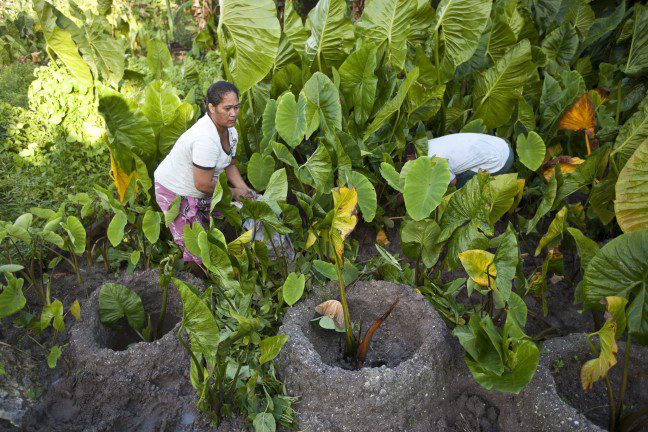Women play a vital role in the global food system and produce a large proportion of the food we eat; yet they have little access to land and their farm work is often underpaid and undervalued. If women farmers had the same access to resources and decision making as men, their efforts would significantly reduce world hunger, improve child nutrition and raise the incomes of rural communities.
Maleana Feli tends to her family’s pulaka pit — pulaka is a root crop and traditional food source on the small island nations of Tuvalu and Kiribati. After fertilising each plant, she pats together a ring of raised earth around them to help prevent saltwater intrusion during high tides and the regular king tide that can kill the plants.
There are many small Pacific island nations like Tuvalu and Kiribati that are just several metres above sea level at their highest point. Together with increases in the frequency and intensity of severe weather events and rising sea levels due to climate change, are making them increasingly vulnerable; eroding the coastline, destroying property but also reducing food security.
Supporting small-scale farmers, especially women, is central to reducing global hunger. Australia’s political parties need to commit to increasing the aid budget to 0.5% of gross national income (GNI) by 2016 and double the amount of aid towards food security with an emphasis on small-scale food producers.
This money will help women like Maleana feed themselves and their families by providing better access to resources, building resilience to climate change which will ultimately get more food to market and reduce hunger.
Write to the Australian Government urging it to play a leadership role in tackling global hunger. Find out more and take action.

